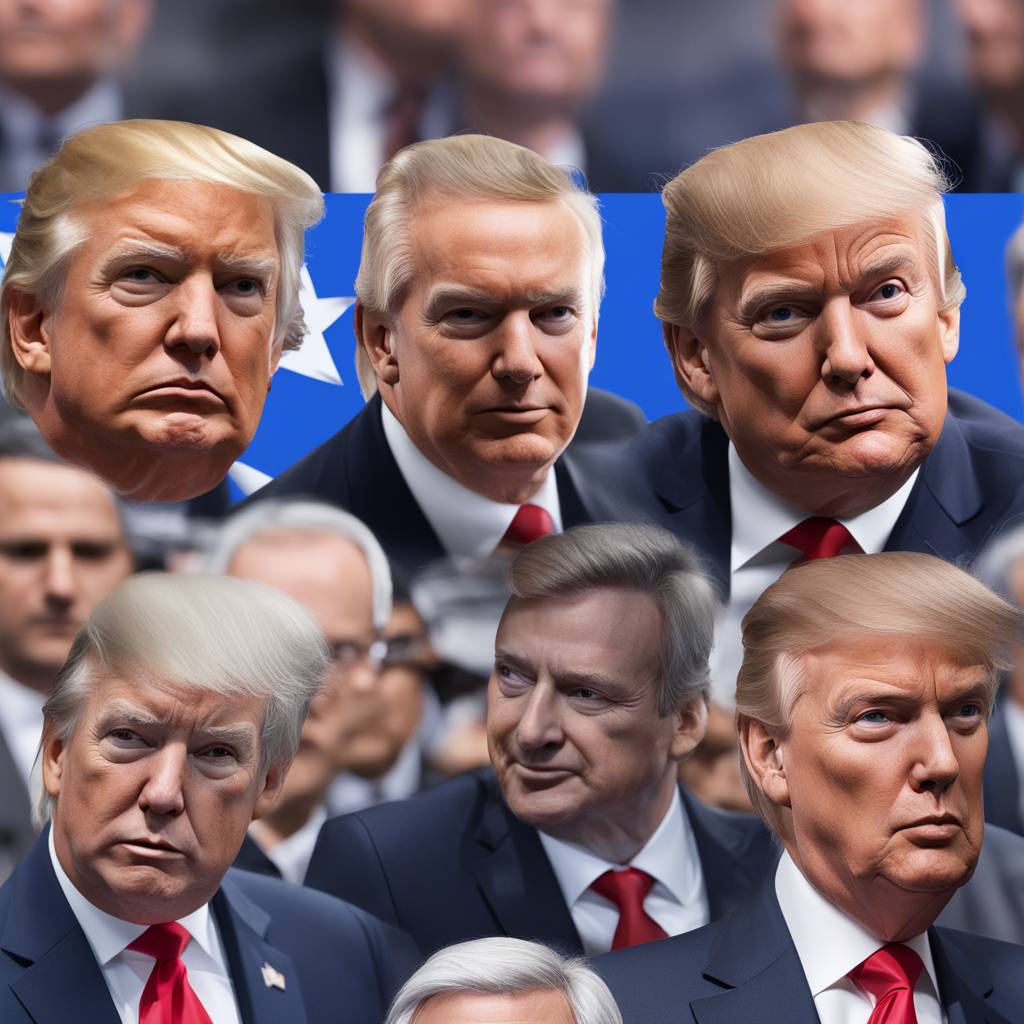Brussels, my love? delves into the potential repercussions of a Trump 2.0 presidency, particularly in the context of NATO and European security. The discussion revolves around how Trump may respond if a NATO ally were attacked by Putin, with concerns raised about Trump’s subservience to the Russian president. Ian Bond, deputy director of the Centre for European Reform, highlighted how Trump had previously dismissed evidence of Russian interference in American processes, showcasing his loyalty to Putin. The issue of Trump’s approach to Europe and the war in Ukraine was also raised, with Trump’s statements during his recent campaign suggesting a lack of concern for America’s European allies.
As the possibility of Trump returning to the White House looms, questions arise about the EU’s readiness to handle such a scenario. Tomi Huhtanen from the Wilfred Martens Centre cautioned against succumbing to ‘Trump panic’ but emphasized the need for Europe to prepare for potential challenges ahead. Huhtanen stressed the importance of Europe being independent on defense and security, pointing out the need to bolster support for Ukraine in the face of potential American apathy. The idea of Europe needing to build up its own defense capabilities and military movements was also emphasized as a means to ensure self-reliance in the face of changing geopolitical dynamics.
The conversation also touched upon the events of January 6th in Washington DC, where Trump supporters stormed the Capitol building following baseless claims of election fraud. Katie Bolongaro, a journalist with M Lex, highlighted the fragility of democratic institutions in the face of efforts to undermine them, urging caution in the face of potential threats to the system. Concerns were raised about the resilience of checks and balances under another Trump presidency, with discussions revolving around the need to fortify democratic norms to withstand such challenges. The discussion also veered towards the need for European countries to step up their defense efforts in light of potential shifts in American foreign policy.
Vlad Gheorghe, an MEP from the Liberal, Renew Europe group in the European Parliament, echoed calls for stronger European defense capabilities. Gheorghe emphasized the importance of European countries taking responsibility for their own armed forces rather than relying on American support. The issue of potential American disengagement from global security efforts was highlighted as a driving factor behind the need for Europe to bolster its own defense mechanisms. The discussion pointed towards a growing recognition of the need for Europe to take a more proactive role in ensuring its own security in the face of uncertainty on the global stage.
Overall, the debate around Trump 2.0’s potential impact on European security highlights the need for the EU to be proactive in preparing for possible challenges ahead. The question of how Trump would respond to a security crisis involving NATO allies and Russian aggression remains a point of concern, particularly given past instances of Trump’s deference to Putin. With the possibility of a return to office looming, European leaders are urged to take steps to enhance their defense capabilities and reduce dependence on American support. The discussion emphasizes the importance of fortifying democratic institutions and ensuring resilience in the face of potential threats, underscoring the need for Europe to adopt a more assertive stance in safeguarding its security in a changing geopolitical landscape.













